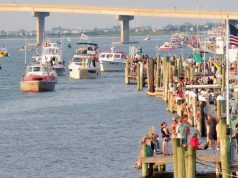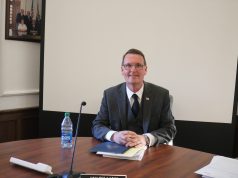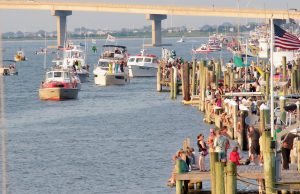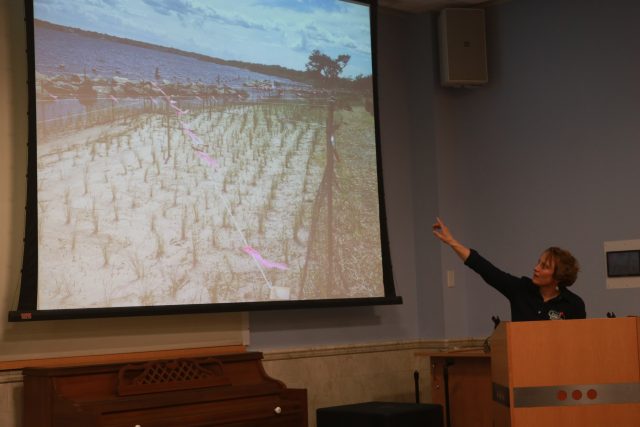
By Maddy Vitale
Being aware of the changes in the coastline is key to developing a plan to mitigate, adapt, or learn to live with rising sea levels throughout the Jersey Shore, a Rutgers scientist said Thursday night.
“Be smarter than the storm,” said Lisa Auermuller, watershed coordinator with the Jacques Cousteau National Estuarine Research Reserve. “Things are changing. We don’t have to look in the rearview mirror anymore. Take the science to help inform your decision-making.”
Auermuller was the featured speaker at the Ocean City Free Public Library during a presentation, called Coastal Resiliency, that focused on flood hazards and ways to reduce the risks.
https://ocnjdaily.com/wp-content/uploads/2019/02/auermuller-resilience-puzzle-2019-1.pdf
A captive audience listened to her detail some of the vital points to creating a safer environment, while protecting the delicate and precious marshlands.
Auermuller included post-Superstorm Sandy photos while discussing changes after the massive storm, including home elevations and a living shoreline.
She also spoke of the importance of planting dune grass and pointed to different ways to protect properties such as bulkheading.
During her presentation, she showed what is called a hardened structure used to create a barrier around marshland that can keep out rising waters but could also upset the ecosystem.
During the public portion, members of the audience told Auermuller that Ocean City is very proactive when it comes to flooding issues. One person asked if there was an example of a community that is very proactive.
Auermuller said Brick Township in Ocean County has done a lot.
She added that a number of communities have sought Community Rating System points for national flood insurance. Ocean City is trying to become a three on the rating scale, which would allow a 35 percent discount on insurance.
At the beginning of the presentation, Brian Kempf, an alternate member of the Ocean City Environmental Commission, introduced Auermuller and emphasized the importance of working with environmental experts.
“We wanted Lisa to come in. If you are like me, this is not your favorite dinner conversation,” said Kempf, of Sea Change Planning Services LLC. “Lisa really has a finger on the pulse of what we can do.”
One piece of information alarmed some of the audience members.
“As a scientist, I will tell you it is happening, and the rate we are at now for sea level rise will increase over time,” she said. “We kind of have a double whammy. Our water is rising, and our land is sinking. We have one of the most extreme forecasts of sea level rise because of that issue on the East Coast.”
There are measures people can take to help scientists and officials, and could even influence grants.
“We need to try and document the trouble spots,” Auermuller said. “Crowdsourcing data is very important. People taking pictures, potentially this could help with grant forms. It is the beginning of ways we can use.”
Auermuller said a major resource to see the flood maps is www.NJFloodMapper.org.
“People are seeing what is going on in their backyard,” she said. “Engaging the public and hearing what their ideas are and getting them involved make it not scary, but part of the discussion.”
She noted that while making decisions about what to do when it comes to coastline protection and flooding, birds, horseshoe crabs and other animals should be taken into consideration.
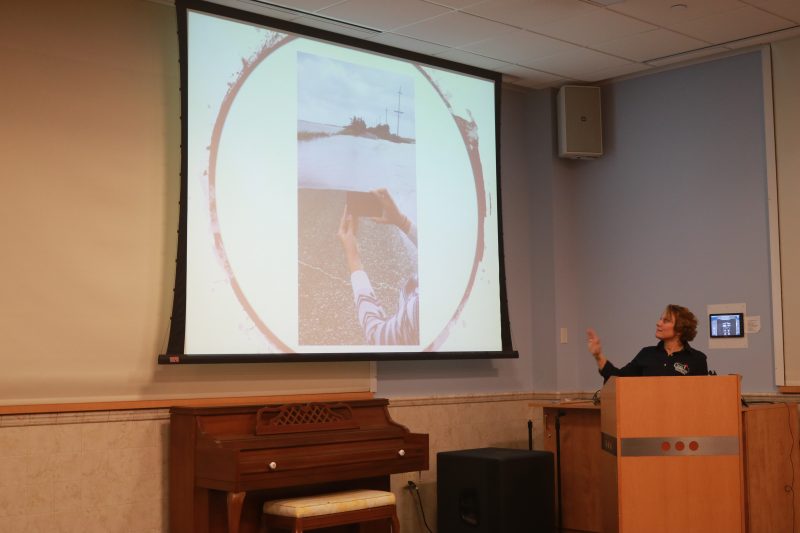
As a scientist, she believes that a comprehensive plan is needed.
“We need to be willing to adapt. I think that with the number of communities in New Jersey along the coast, they recognize things are changing,” she said. “Being proactive and having a plan in place for resiliency around social, economic, business and science factors, is really putting the pieces of the puzzle together.”
And there is one more thing, Auermuller reminded the audience. “Think about the next generation,” she said. “We are handing them the coastline and the challenges that they will have to take on.”
The event was part of the Environmental Lecture Series sponsored by the Ocean City Environmental Commission in partnership with the library.


